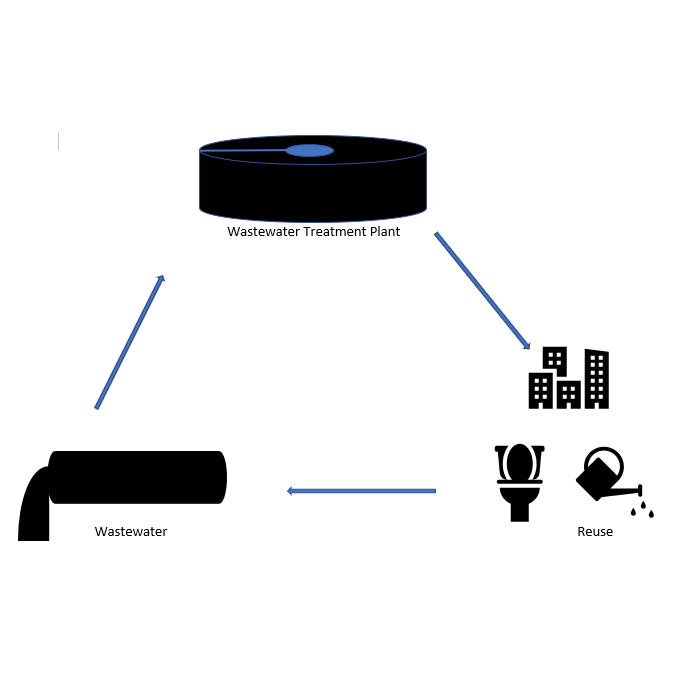
Wastewater, The Neglected Valuable Resource
It’s said that, “water is life’’ because the existence of humans is virtually impossible without water. Both domestic and industrial human activities depend on water; whether cooking, laundry, gardening, cooling, heating, recreational or production water is required. But the accessibility to such an important resource is becoming limited due to increased urbanization and climate change and variability. Conventional water sources such as rivers, lakes, streams, springs, groundwater are continually reducing in quantity and are under water demand stress. Therefore, it’s imperative that other alternative water sources are sought. Unfortunately, wastewater (treated) which holds a great prospect of being a viable and sustainable alternative water source is largely neglected.
Water, a valuable resource for human existence is continually becoming inaccessible to humans. At homes, schools, recreational centers, restaurants, hospitals and industries water is needed for various activities such as cooking, heating, irrigation/garden watering, laundry, sports, drinking, car washing, etc. The water sources by which these water needs are met include groundwater, surface waters (rivers, lakes, streams), springs and rain water. However, increased urbanization and climate change have negatively affected the quantities and distributions of these sources, limiting the amount of water available for use.
Unfortunately, wastewater, a possible water source, which could be helpful to humans, have been neglected. It’s the water that has been used for an activity and its quality deteriorated. This includes water from laundry, bathing, cooking, sinks, etc. Majority of the water extracted for use ends up as wastewater, whether for cooking, bathing or laundry. Yet such high amount of water is disposed of into rivers, lakes and streams after treatment, even though it can be used for other purposes. The act of using wastewater dated back several hundreds of years but its advancement has been hampered by negative public perception. The current global water crisis has called for a broader discussion on this important but neglected act. Currently few countries such as Namibia, United States of America, Singapore, Spain and Australia are using treated wastewater for direct and indirect use.
Thanks to the advancement of technology, various treatment technologies have been developed to treat wastewater to have qualities similar to that of freshwaters. The incorporation of advanced technologies such as membranes and UV disinfection, into conventional wastewater treatment has led to a considerable improvement in the effluent (wastewater discharged) quality. The once dirty, coloured and smelly water now comes out as colourless, odourless and clean water; some having qualities similar to potable water. This relatively high-quality water, which could have been used for irrigation, laundry, flushing of toilet and street cleaning rather ends up in rivers, lakes and streams in many countries around the globe including the Czech Republic.
Use of treated wastewater for human activities has enormous benefit to society, both economically and environmentally. It reduces farmers’ dependency on chemical fertilizers, which poses pollution risk to groundwater and surface waters, and also saves farmers money. Water resources which are experiencing water stress due to over extraction as a result of urbanization and climate change will be relieved of such water stress since less water will be extracted. The use of treated wastewater is key in ensuring the sustainability of water resources for our generation and future generations. Until humans consider treated wastewater as a resource for human activities, the sustainability of current water resources to meet current and future water demands remains a dilemma considering the fact that the causes of water scarcity keep on aggravating rather than declining.
Is in the light of this dilemma, that the Department of Water Technology and Environmental Engineering of University of Chemistry and Technology is engaged in wastewater reuse research activities to unravel the possible usage of treated wastewater in Czech Republic and the world at large. Currently research is underway to demonstrate the possibility of treated wastewater for irrigation and urban greenery. Considering the drought being experienced, it is important that other alternative water sources such as wastewater is given the needed attention. The work of the department will shed more light on treated wastewater usage to help the public and authorities make informed choices regarding wastewater reuse.
Author is doctoral student at Department of Water Technology and Environmental Engineering







